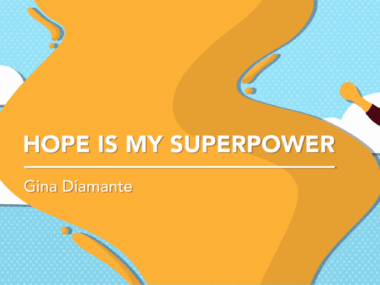When the family caregiver becomes the ‘care-getter’
My multiple myeloma diagnosis led to a paradigm shift in my family
Written by |

Women often play the role of caregiver. When our loved ones are sick or hurting, we’re the ones ladling out chicken soup, whether it’s for the body or the soul. It can be a hard role to resist, especially for an inveterate “fixer” like me who feels responsible for making sure everything is all right.
So when the tables are turned and the caregiver becomes the “care-getter,” it can be a paradigm shift.
That shift can be as powerful — and sometimes as damaging — as an earthquake. The challenges of caregiving are recognized in November with National Family Caregivers Month. It’s an effort led by organizations like the Caregiver Action Network to help spread awareness and share resources, with the hope of easing caregivers’ burdens.
It’s also a time for patients like me to recognize our family caregivers. I could not navigate multiple myeloma without my husband, Tony, and our son — also named Tony, but I have always called him “Tig” for “Tigger.” I don’t think I’ve ever thanked them enough for everything they’ve done. They have been my traveling companions through “The Land of ‘I Don’t Know,’” from diagnosis day through my stem cell transplant and on to maintenance therapy.
A test of ‘in sickness and in health’
Tony and I had been married 25 years when I was diagnosed, and our vow of “in sickness and in health” had already been challenged a few times — usually by him! He’s had a few surgeries and a motorcycle accident that left him with lingering pain. In contrast, my worst problem had been post-pregnancy gallstones — until the day the hematologist said the words “multiple myeloma.”
Too often I’ve seen other patients say their spouses or partners withdrew upon diagnosis. Tony never did that, even when he was working an out-of-town job. He was there for me, on the phone every night and then in person after he left the job. He went with me to appointments. He stayed in my hospital room the night before my stem cell transplant and slept on a sofa bed that was murder on his back. Despite that, he went home and got my recovery room in order, right down to shampooing the carpet. He chauffeured me when I couldn’t drive, and never pushed me to eat more when I only wanted a scrambled egg (yes, singular, with unsalted butter) for the fifth meal in a row.
Even today, six years into remission, he’s still taking care of me. I’m writing this late at night, and in a few hours, he’ll bring me the cup of coffee I’ll need to get moving in the morning.
College student and caregiver
Tig was 19 when I was diagnosed. There’s never a good age to find out your parent has a serious disease, but to me, 19 is a really awful time for it. Probably because my dad’s first triple bypass surgery happened when I was 19.
A lot fell on Tig at that time because Tony was working out of town. It wasn’t easy for him because he was finishing up a semester at the local community college. But he ran my errands, picked up my prescriptions, and let me lean on him, figuratively and literally. When I came home from the stem cell transplant, he tag-teamed with Tony on bringing me meals and anything else I needed in my little isolation room, while taking more classes on his way to an engineering degree.
Until six years ago, Tig never had to experience the caregiver role, but he grew into it, and I am proud of the man he’s become.
I’m proud of both of them, and so thankful.
To all the family caregivers: I salute you!
Note: Rare Cancer News is strictly a news and information website about the disease. It does not provide medical advice, diagnosis, or treatment. This content is not intended to be a substitute for professional medical advice, diagnosis, or treatment. Always seek the advice of your physician or other qualified health provider with any questions you may have regarding a medical condition. Never disregard professional medical advice or delay in seeking it because of something you have read on this website. The opinions expressed in this column are not those of Rare Cancer News or its parent company, Bionews, and are intended to spark discussion about issues pertaining to rare cancer.




Leave a comment
Fill in the required fields to post. Your email address will not be published.